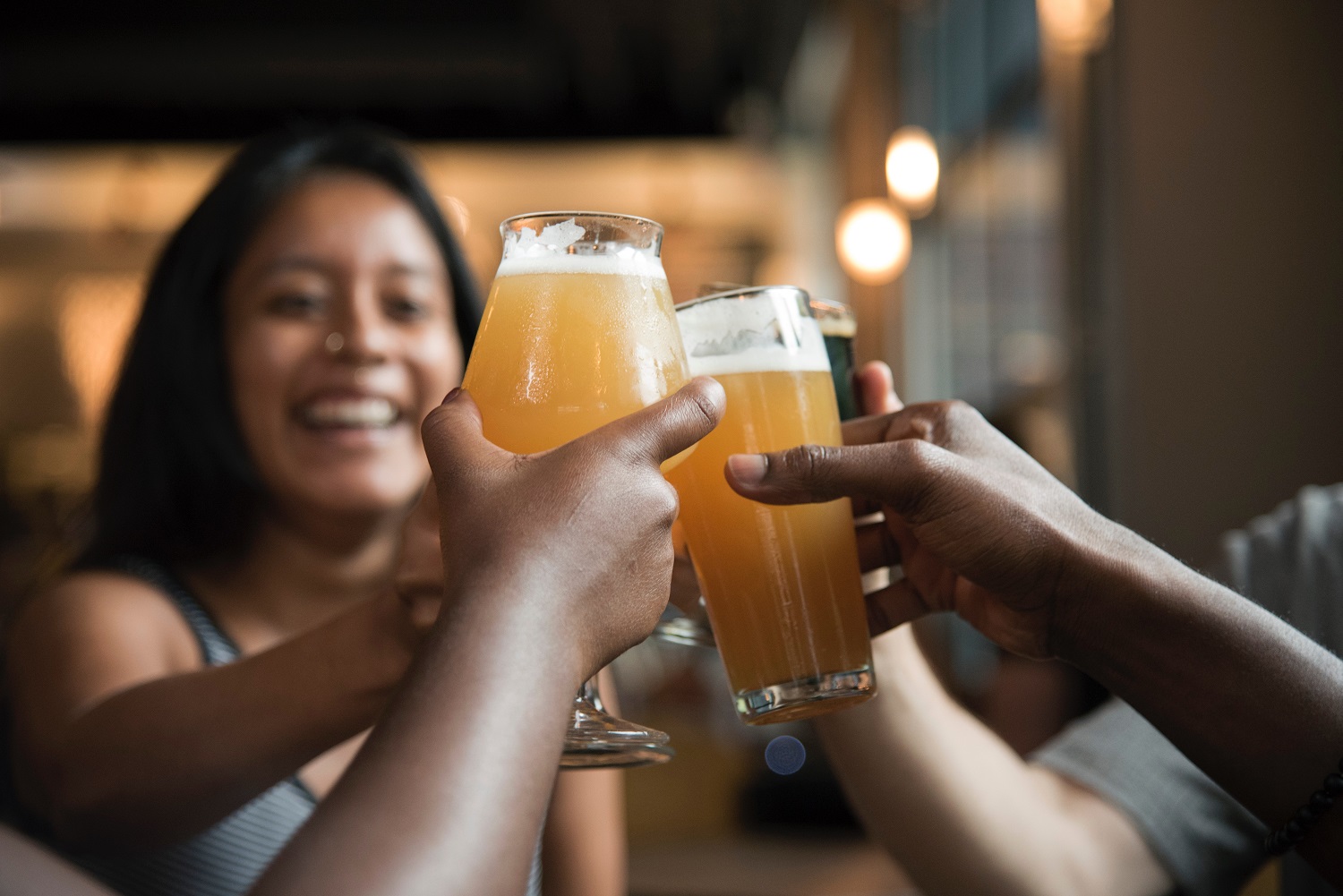students, workers & explorers going to New Zealand & travelling from New Zealand.

Answer our simple questions to get started


InsurancesafeNZ provides three different travel insurance policy categories: Studentsafe, Workersafe and Explorersafe. This means that if you’re travelling to New Zealand, travelling within New Zealand or temporarily leaving New Zealand, we have something to offer you. Use the Policy Finder to narrow your policy search and get a quote. Our website is also packed with great information on how to keep safe, how to make the most of your time abroad and how to understand your travel insurance policy better. If you need further assistance contact one of our friendly staff on our toll-free number 0800 486 004 (within NZ) or +64 9 488 1638 (outside of NZ).
Studying in New Zealand is an adventure of a lifetime, which is why a range of unexpected bumps and accidents are covered under Studentsafe policies.
But when it comes to certain medical conditions, you may not be automatically covered. That’s why it’s important to disclose any medical conditions you want cover for.
The term “Pre-existing Medical Conditions” is commonly used when applying for insurance. This refers to your medical history and the full definition can be found on
Being in good health is key to embarking on an exciting study adventure in New Zealand.
Anyone planning to study in New Zealand for more than three months is required to apply for a student visa.
When applying for a new or to renew a visa, you may need to provide New Zealand Immigration with medical information to demonstrate an acceptable level of health.
Studentsafe policies do not cover medical costs for your visa application.
Studentsafe policies are desig
Your wellbeing is important which is why Studentsafe provides cover for medical and related expenses.
But before you make an appointment for check-ups related to your health, it’s important to understand what is and isn’t covered under your policy.
Studentsafe does not provide cover for certain medical tests listed as Exclusions under Section 1: Medical and Related Expenses as set out below:
9. Health screening, medical and dentals reviews or vaccinations.
&
Staying healthy plays a vital role in making the most of your study adventure. If you have been prescribed medication and are looking to make a claim, it’s important to understand what is and isn’t covered under your policy.
Just because a certain medication has been prescribed by your doctor, it does not mean that it is automatically covered.
Studentsafe does not provide cover for certain medical tests listed as Exclusions u
Keeping mentally well is important to make the most of your study adventure.
While studying away from home is an exciting life experience, there are times you may feel overwhelmed or experience loneliness, stress, anxiety and depression.
During these challenging times, it’s important to recognise the pressures you may be under, whether it’s adjusting to a new environment or the added load of assignments and exams.
If you need professional help, you can feel assured knowi
If you’re reading this article, you’ve already made a sensible choice. If you’re in a new relationship, or thinking about starting to date, it’s important to think about how you can ensure that you and your partner stay safe when you’re having a little extra ‘fun’.
So read on to learn more about what steps you should be taking to keep safe. The consequences can range from irritating to life-threatening – and that isn’t a gamble anyone should take.
Any new culture will have customs that you will start to learn very quickly as soon as you arrive! To give you a head start on your time in New Zealand, we’ve got a few key bits of information about Kiwi culture – and a whole lot of detail about speaking like a local!
When you’re walking the streets of New Zealand – or even when you’re still at the airport and navigating escalators – it’s good to remember that we drive on the left, not the righ
Unless you’re really into skiing, winter in New Zealand isn’t really the most exciting time of year. It’s not cold enough for there to be pretty snow falling in the cities, but it’s still cold enough that you don’t want to spend time outside unless you have to. Instead of snow, we mostly get rain and wind. It’s certainly not terrible – but it does give you a good excuse to go somewhere sunny if you have the time and budge
Adjusting to a new workplace comes with challenges wherever you are in the world – and if you're in a new country as well as a new workplace, those changes can be even more extreme. New Zealand culture is quite friendly and informal, and this extends to many workplaces. But it can be difficult at times to understand where the limit is – how casual is too casual and what will make you look unprofessional? How formal is too formal and what will make you look too unapproachable?
Some of
Everyone experiences periods of stress in certain situations – perhaps exams are coming up, or you’ve spent a little more than you intended to at dinner and pay day is still a couple of days away. That’s a normal part of life, and most of the time, it goes away fairly quickly when the source of the stress comes and goes. You pass your exam, you check your bank account and ther
A healthy worker is a more productive worker. It seems like an obvious statement to make, but in today’s working world, many workers feel that they have keep pushing and pushing to get results – even at the expense of their health and wellbeing. Workplaces need to be more supportive of their staff to make sure that they feel they are able to take time to get healthy if they are unwell, or to express their concerns if they are overburdened with stress.
Ask any adult what their student years were like, and there will almost always be two things that everyone has in common – lots of fun, and hardly any money! But if you’re new to a city or even a country, it can be hard to know where to begin when it comes to finding social activities that you can do on a student budget.
To help you out, we’ve rounded up some of our top tips for free and cheap things to do in New Zealand’s main student cities and towns to get you started!
Flatting doesn’t have to be expensive. There are a number of ways you can set up a flat on a budget without losing out on quality and the occasional treat. To make sure that you get the best experience possible no matter what your income may be, we’ve brought together a few of our favourite tips and t
When you’re away from your family and community that feeling of homesickness can feel very overwhelming. Making friends and keeping busy are the easiest ways to prevent homesickness – but you need to put the effort in. If you sit at your computer looking over your soci
When you’re planning adventures overseas, there’s so much excitement that it can be easy to forget about the parts of travel that are a little less glamorous. Organising travel insurance may not be as thrilling as planning your routes and researching the major attraction
For many people, the shift from university study to the working world is one of the biggest changes they will ever experience. Life until that point is focused on formal education – sitting in class, doing homework, taking notes… and then all of a sudden, it’s time to step out into
No matter where you go in the world, someone will tell you to keep safe and often there’s a good reason for it. When travelling or moving somewhere new it can be tempting to step outside of your comfort zone and give everything a go. While this is a great attitude it’s important to explore your new surrou
Relocating to a new country for work is hugely exciting. Getting a new job and home and navigating new cultures, practices and languages is an immersive experience and can be incredibly consuming.
An “out with the old, in with the new” approach can be tempting – after all, you’re making a
In general, the younger your children are the easier it will be for them to pick u
For many of us, our pets are part of the family. For expats intending to move overseas with their pet, planning and research before the move is essential. It is crucial to ensure the welfare of your beloved pet during and after transit, and that regulation surrounding the importation and exportation of pets is complied with.
Research animal import regulations for your new country of residence, to determine what conditions must be met for your pet to be allowed en
Any new culture will have customs that you will start to learn very quickly as soon as you arrive! To give you a head start on your time in New Zealand, we’ve got a few key bits of information about Kiwi culture – and a whole lot of detail about speaking like a local!
When you’re walking the streets of New Zealand – or even when you’re still at the airport and navigating escalators – it’s good to remember that we drive on the left, not the right. Why? Because we also walk on the left of the footpath (or sidewalk) and on escalators. So going with the flow of other walkers is a good way to fit in straight away!

Some of the unspoken but important customs of our society come from traditional Māori culture – the native people of New Zealand. One that’s useful to remember in social settings is the fact that it’s generally polite to take your shoes off indoors at a private home – and it’s a real taboo to sit on tables, benches, or other surfaces used for eating or preparing food. Not all Kiwis observe these particular customs, but it’s fairly wide-spread so it’s sensible to be on the safe side and respect those ‘rules’.
You may also encounter Māori influences in formal settings. Many universities will invite new students to a pōwhiri, or welcoming ceremony, at the start of the academic year. This ceremony will include speeches and songs in Māori, and you may find yourself learning the custom of the hongi – when two people greet each other by briefly pressing noses together. This custom is related to the idea of sharing the breath of life between two people, and is a formal, respected greeting. In most formal situations outside of pōwhiri, however, the standard greeting is a good old international handshake.
We tend to be a fairly polite people in New Zealand – people will greet each other while walking the dog in their neighbourhood, and in most places it’s standard procedure to thank a bus driver when you’re getting off the bus. Please and thank you should be used in any service setting, whether you’re in a fancy shop or a supermarket, a restaurant or a fast food outlet.
We also tend to be reasonably private, even if we are friendly and easy to talk to! Topics like why people don’t live with their parents or why they aren’t married aren’t appropriate for Kiwi audiences – likewise, avoid talking about people’s salary or why they don’t have children! But with constantly changing weather and plenty of opinions about it, the weather is always a very safe topic to start with. Many Kiwis will talk for hours about their favourite sports teams too, although keep in mind that not every single New Zealand is a fervent All Blacks fan, despite what you might think from the media!

If an invitation to an event says ‘bring a plate’, make sure that the plate you bring has something delicious on it! ‘Bring a plate’ means bring a dish to share with everyone else – so someone may bring sausage rolls, another person might bring muffins, and there could be carrot sticks and hummus. Basically something easy to share and tasty will be popular with everyone – just make sure it’s not an empty plate!
And on the topic of food, if someone says they’re shouting a drink or meal, it has nothing to do with yelling and screaming – instead it’s their treat. They are paying for the food or drink so you don’t have to. Enjoy, and be sure to say thank you.

Sup? Hiya. Kia ora! Howzit? G’day.
It might be mostly English, but the way Kiwis speak can be very confusing for new arrivals to the country. The combination of being a long way from anywhere else, as well as Māori and Polynesian cultural influences have created some unique ways of saying things.
It’s confusing from the beginning – aren’t kiwis a fruit? Yes – and no! As far as we’re concerned a kiwi is a type of native bird, our most famous one, in fact – flightless, brown and fuzzy, a strangely long beak and huge feet. It’s also what we call ourselves, and what many people overseas call us too. As for what the rest of the world calls kiwis – the fuzzy brown fruit with the tangy and seedy green flesh – well, we call them kiwifruit, after the fuzzy brown birds.

Now, in some lists of New Zealand slang, you’ll find lots and lots of strange phrases and words that you’ll never actually end up hearing in a city environment when you’re surrounded by young people. Rather than fill up this article with those sorts of bits of slang, we’re focusing on the sort of language that will actually help you understand your peers and even adults around you – and hopefully help you feel like you can use some of the phrases in conversation too!
Arvo – Afternoon. I’ll come visit you on Saturday arvo.
Bach/Crib – Holiday home. Bach is widely used on the North Island, crib on the South Island. We went down to my grandparents’ bach in Taupō.
Bugger – A fairly widely used (but not too rude) swear word or exclamation. Kiwis often are, for better or for worse, quite fond of swearing, so don’t take it personally! Bugger, I’m late for class!
Cheers/chur – Thank you. I got you a coffee. Oh, chur!
Chocka – Full up/busy. I tried to get into the concert but the venue was chocka.
Dairy – Convenience store/corner store. Can you pick up some juice from the dairy on your way home?
Egg – An idiot, a silly person. I lost my textbook! Oh, Matt, you egg!
Flat – A shared rental house or apartment. I moved into a new flat and my bedroom is huge!
Grotty – Gross, unpleasant, dirty – can also be used to talk about feeling unwell. Ugh, my t-shirt is all grotty after my trip to the gym.
Gutted – Disappointed. Oh man, I’m gutted that I missed that movie!
Hard (out) – A word (or phrase) used for agreement. Hey Olivia, you liked that café, eh? Oh yeah, hard!
Heaps – Lots of something. We ate heaps of pizza!
Hungus – Someone who has eaten a lot because they were super hungry. Chris ate all our chocolate, what a hungus!
Jandal – Flip flops, thongs… basically, rubber sandals with a strap between the toes. We’re going to the beach so wear your jandals!
Lurgy – Generally sick – often used in the phrase ‘the dreaded lurgy’. Lisa couldn’t come, she’s got the dreaded lurgy.
Maccas – McDonalds. Let’s go to Maccas and get a Kiwiburger!
Mates – Friends. I took the ferry to Waiheke with my new mates from uni.
Mean – Great, cool. That new video game sounds mean!
Munted – Messed up, broken, ruined. My phone is totally munted since I dropped it in the toilet.
Nek minnit – Next minute, next thing you know. I entered a competition during O-week and nek minnit – I won!
Scarfie – Students from Otago University in Dunedin – one of the only real ‘student towns’ in New Zealand. Yeah, she’s a scarfie – down there studying med.
Skux – Someone popular and cool – especially with the opposite gender! That Dave, what a skux guy!
Squiz – A quick look – a peek. Hey, could I take a squiz at your notes in case I missed anything when I went to the bathroom?
Stink – Irritating, dumb, annoying. They didn’t invite us to their party! Oh stink!
Sus – Someone who’s up to something, or a disconcerting situation. That guy you met last night seemed a bit sus, I’m glad you left with us.
Suss – To sort something out. Okay, time to suss out this group project
Sweet (as) – Great, excellent, expression of agreement. Do you want to go to the beach? Yeah, sweet as.
Ta – Thanks. Can you please pass me that pen? Ta.
Togs – Swimsuit, bathing suit, swimming costume. Let’s go to the pools – did you bring your togs?
Wops – The middle of nowhere – sometimes used just to describe a part of town far from the CBD. I can’t believe she lives in Dairy Flat, that’s totally the wops!
Yarns – Stories, tall tales. Craig’s so good at spinning yarns, eh?

As well as bits of Kiwi slang that fit into the world of New Zealand English, there are some other words it’s useful to know that aren’t actually English at all, but instead are in te reo Māori, or the Māori language. Some phrases and words are commonly used in everyday speech here – so here are a few to be familiar with.
Kia ora means hello, or hi, as well as thank you and even great! As such, you’ll hear it quite frequently. It’s properly pronounced ‘kee-ah-aw-rah’, run together quickly – though you’ll hear a lot of more casual ‘kee-or-ah’ too.
Other greetings to be familiar with include tēnā koe (‘teh-naah kweh’) and tēnā koutou (‘teh-naah koh-toh’), as well as tēnā korua (‘teh-naah koh-roo-ah’). All three mean ‘greetings’, but tēnā koe is to one person, tēnā korua is specifically to two people, and tēnā koutou is greetings to three or more people.
Good morning can be mōrena (‘MOH-reh-nah’) or ata mārie (‘ah-tah MAH-ree-eh’), while haere mai means ‘welcome’, and is pronounced ‘hy-eh-reh my’. You might also hear e noho (‘eh noh-ho’) and e tū (‘eh too’) for sit down and stand up respectively.
Other words you might encounter include waiata (‘why-ah-tah’), meaning song, and kōrero (‘KOH-reh-roh’), which means speak or a conversation. Whānau (‘faah-nah-oo’), or family, is used by many Māori and Pākehā (non-Māori, pronounced ‘paah-keh-hah’) people alike. Aroha (‘ah-roh-hah’) means love, or compassion.
People might describe something that’s good or excellent as being ka pai (‘kah pie’) or even tu meke (‘too meh-keh’) if it’s especially amazing. And here’s an important one for any kind of socialising or getting to know people: kai (‘ky’) means food, or a meal!
There are many more that may turn up at some point, but these are a few that should get you through most everyday usage. There are also Māori courses available at many educational institutions, so if you have some space for a general interest course, why not learn this fascinating Polynesian language? Grammar is great for the brain!
